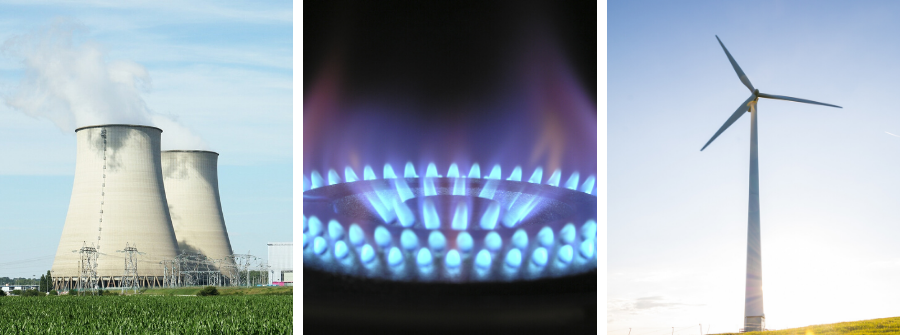
Fixed price or variable price? What to choose for your energy contract?
It’s all over the news: energy prices rose sharply in 2021 and 2022 due to the post-lockdown economic recovery and the conflict in Ukraine. For thousands of households reaching the end of their contracts, this is the time to switch deal or supplier. But when comparing your options, you have a mental block: should you choose a fixed price or a variable price contract? What is the difference between the two? Which is more suitable for your energy consumption profile?
If this sounds familiar, you’ve come to the right place! We’re going to explain everything you need to know about these two types of pricing. You’ll then be certain that you are making the most appropriate choice for your situation when you change energy contracts.
ATTENTION: Due to the high energy prices and the still volatile market, Belgian energy suppliers no longer offer fixed-rate contracts, but only variable ones (monthly, quarterly).
What is a fixed price energy contract?
If you choose a fixed price electricity or gas contract, it means that the price you pay per kilowatt-hour (kWh) will remain the same throughout the whole duration of the contract. This ensures that you receive a consistent price over a given period (often one year or three years). This is the safe option.
What is a variable price energy contract?
On the contrary, with a variable rate energy contract, the price you pay per kilowatt-hour will be indexed every month or every three months based on a specific index.
For example, for gas, a lot of suppliers use the TTF103 index (the quarterly reference index for gas in Belgium). So, the gas price per kilowatt-hour (without fixed components such as network costs) is calculated according to the TTF103 + X formula, where
– TTF103 is the index value which varies each quarter (expressed in c€/kWh);
– X represents the supplier’s margin (expressed in c€/kWh).
This type of contract tends to be closer to real-time situation of the market. By selecting this option, you will be able to benefit from reduced prices when electricity or gas prices fall on wholesale markets, but you could also feel the effects of a price increase.
Advantages and disadvantages of fixed and variable prices
As we have seen, both types have their own advantages and drawbacks.
Fixed price:
- Advantages: The prices are stable, so you won’t have any unpleasant surprise when you receive your bill. You are protected from unexpected price surges on the energy market.
- Disadvantages: In exchange for this security, the supplier generally takes a slightly larger margin on a fixed price contract.
Variable price:
- Advantages: You can enjoy attractive discounts if the market prices fall during your contract. In addition, the rates for this type of contract are usually lower on the subscription date than those of fixed price contracts.
- Disadvantages: The risks are higher, and you will not be protected in the event of a market price increase.
Note that variable prices, as well as fixed prices, only affect the “energy” portion of the total price which you are billed for. This generally represents about one fifth of your invoice. However, since the temporary VAT reduction on energy (until 30 september 2022), it is closer to three quarters of the bill. Its exact share varies according to your area and the type of energy. To see what other components make up your invoice, you can visit the CREG site.


Can we really compare fixed and variable prices?
In reality, it is quite complicated to compare fixed prices and variable prices because of their nature. For an effective comparison, you would need to take into account the price change that occurs monthly or quarterly for the variable rate. However, it is impossible to predict it accurately. One solution would be to base your calculation on the prices over the past 12 months to try to find a trend. However, this exercise will not give you an accurate prediction or allow you to make a full comparison between the two types of prices.
Fixed or variable: which electricity or gas rate is best in the end?
Therefore, how do you choose between these two pricing methods if you cannot accurately determine which will be most profitable in the long term? To find out, you will need to rely on other factors:
- Your level of risk aversion;
- The economic situation and common sense.
Are you a born speculator?
If you like speculating on energy prices and you think the current, high rates could fall further over the coming months, an energy contract with a variable price would suit you.
Which energy supplier suits you best? Find it out with a simulation!
If, instead, you do not want to risk an unexpected increase of electricity or gas prices, as it could deal a severe blow to your household budget, it would be better for you to choose a fixed price contract. The stability offered would allow you to plan your expenditure more comfortably and avoid the risk of an unpleasant surprise when you receive your bill.
How can you identify the most suitable rate based on the general economic situation?
Sometimes, it is not about of your appetite for risk. Sometimes, you simply have to rely on the economic situation. Even if you are no specialist at heart, there are some rather exceptional situations which indicate there are opportunities to seize.
For example, during the Coronavirus crisis, electricity and gas prices reached historically low levels. In this type of situation, it would be particularly beneficial to freeze these prices with a three-year fixed contract. Because even if variable contracts seem more attractive than fixed ones when you compare the prices, don’t forget that the situation can change quickly over the coming months.
Besides, the post-pandemic economic recovery and the conflict between Ukraine and Russia sparked a full-fledged economic and energy crisis, with energy prices soaring to historical levels. As a result, many suppliers stopped selling fixed rate contracts. It is indeed currently more risky to enter into a fixed price contract then a variable one, given how much the energy prices skyrocketed. For that reason, if you are looking for a new contract, we recommend you sign a variable rate offer, in case the market prices decrease in the coming months.
How can you find the right contract?
Once you have decided on the type of contract you want, you need to check which supplier is offering the most attractive fixed or variable contract.
A price comparison website such as Energyprice.be can help you, as it allows you to specify whether you want a fixed price of a variable price contract. It will then display the best results available at that time.
Conclusion
Fixed prices or variable prices? At the end of the day, there is no right or wrong choice. It’s up to you to decide: do you want stability, even if it means paying a little more, or do you think the volatility will be in your favour?
If you still cannot make up your mind, contact one of the Energyprice advisors. We can then be review your consumption profile and help you define the characteristics of your ideal energy contract.
Reminder: Belgian energy suppliers no longer offer fixed rates, but only variable ones (usually monthly or quarterly) because of the high gas and electricity prices and the volatility of the market.
Contact one of our advisers
Also read on our blog

From 1 September 2015, VAT on electricity will increase from 6% to 21% for all private consumers. What are the implications of thi…

First of all, it is important to remind ourselves what we mean by the energy mix. It is the breakdown of the different sources of …

In Belgium, choosing to have a dual meter at home can offer several benefits on a few conditions. The first one is to consume duri…

Whether it’s your electricity meter or your gas meter, there’s always a chance you might experience a minor fault. Your meter may,…


